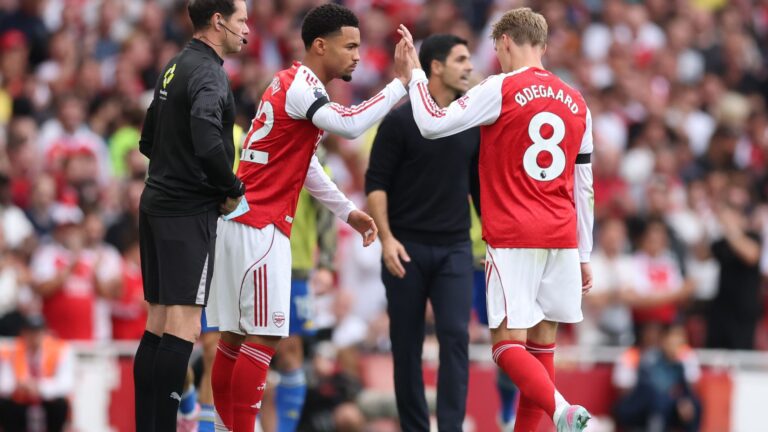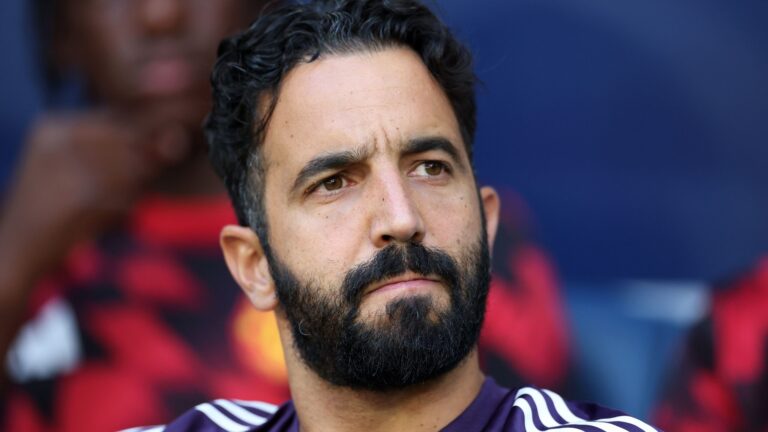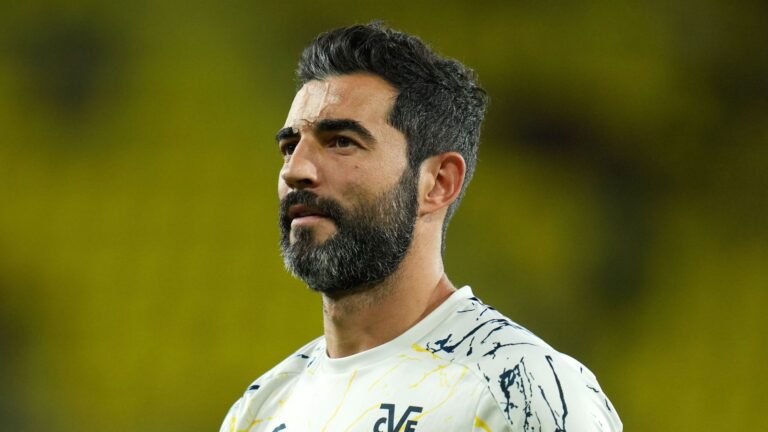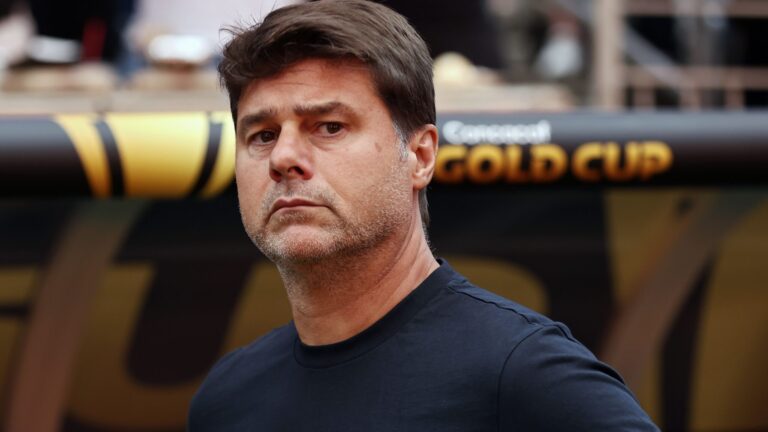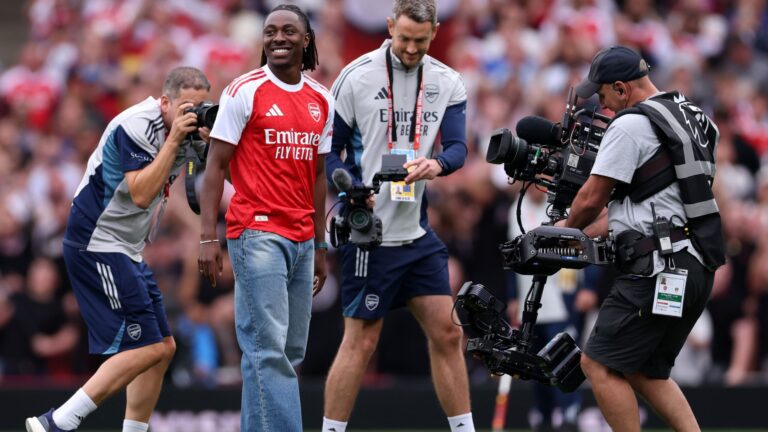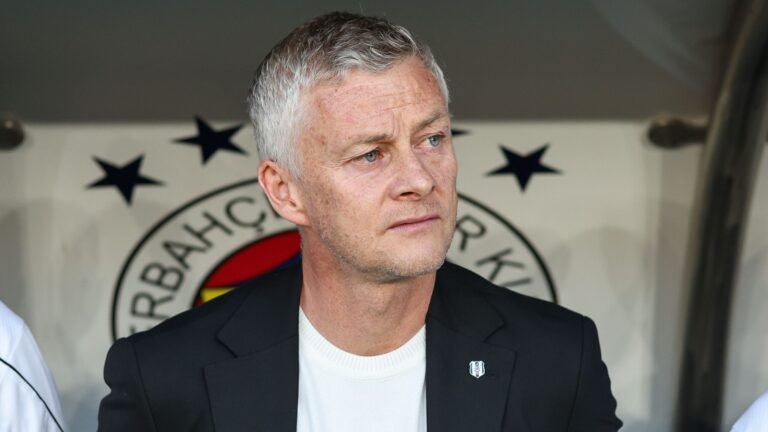The Premier League’s Financial Dominance: Why Top Talents Are Flocking from the Bundesliga
In the ever-evolving world of football transfers, the Premier League‘s immense financial clout continues to reshape player decisions, as highlighted by Vincent Kompany‘s candid remarks. This growing disparity not only affects clubs like Bayern Munich but also underscores broader challenges for European football, drawing stars away from leagues like the Bundesliga with promises of lucrative deals and global exposure.
- Newcastle finalizes massive €85 million transfer for Woltemade from Stuttgart
- Kompany openly acknowledges financial incentives as the main draw for players to the Premier League
- Growing economic divide presents ongoing hurdles for Bundesliga teams



Bayern’s Setback and the Premier League’s Rising Influence
Bayern Munich’s coach, Vincent Kompany, provided a forthright evaluation of how the Premier League’s economic strength swayed long-pursued talent Nick Woltemade towards Newcastle. Reports indicate the forward from Stuttgart is poised to head to St. James’ Park for an initial sum of around £74 million (or $100 million), even after initial plans to link up with the Bundesliga title holders fell through.
Recent Transfer Patterns and Their Implications
This acquisition by Newcastle reflects a persistent pattern where elite players from the Bundesliga are heading to the Premier League. The investment in Woltemade might speed up discussions for Alexander Isak’s potential shift to Liverpool, while Bayern faces yet another disappointment following Florian Wirtz’s decision to join Liverpool instead. Both Kompany and Christoph Freund, the sporting director, have pointed out the stark financial gap, with Freund noting that the Premier League operates on a completely different financial plane.
Kompany’s Perspective on Financial Drivers in Football
When questioned about the allure of the Premier League for top athletes, Kompany attributed it directly to financial factors. He recalled his own experience promoting Burnley to the Premier League, where a sudden influx of broadcast revenue-around €100 million for newcomers-transformed team budgets from roughly €25-30 million to €125-130 million. This shift allows even newly ascended clubs to vie with established Bundesliga sides like Frankfurt and Wolfsburg for talent. For instance, if a team like Sunderland starts pulling players from clubs such as Leverkusen or AC Milan, it highlights how this money reshapes negotiations. The broader issue for the Bundesliga isn’t isolated to Bayern; it’s about ensuring long-term competitiveness when players with just a year or two of standout performance opt for Premier League riches. Recent data from the 2025 transfer period shows Premier League spending exceeding $2.5 billion, further widening this gap and making it tougher for other leagues to retain stars.
Freund’s Views on the Transfer Market Dynamics
Adding to the discussion, Freund observed the significant outflow of high-caliber players from the Bundesliga to the Premier League over the past year and into the current window, accompanied by massive transfer fees. He emphasized that the Premier League’s financial resources extend beyond a few elite clubs, with teams like Newcastle- not traditionally among the top echelon-still wielding substantial funds. This exchange isn’t one-sided; while funds flow back to the Bundesliga, the loss of quality players is eroding its competitive edge. As an analogy, it’s like a river diverting its course, where the Premier League absorbs the best talent, leaving other leagues to adapt to reduced inflows.
Bayern’s Next Steps in the Transfer Window
Despite the Woltemade miss, Freund indicated that Bayern remains proactive, refusing to close doors with only four days left in the window. The club is wrapping up a loan arrangement for Chelsea’s Nicolas Jackson, signaling continued efforts to strengthen the squad. Meanwhile, Kompany’s team aims to maintain their flawless season opener when they take on Augsburg, led by Sandro Wagner, in the upcoming Bundesliga match.
Vincent Kompany’s Perspectives on Nick Woltemade’s Career Move
Vincent Kompany, the former Manchester City captain turned astute manager at Bayern Munich, has shared some fascinating insights into the world of football transfers, particularly regarding young talent like Nick Woltemade. As someone who’s experienced the highs of the Premier League firsthand, Kompany’s analysis sheds light on why Woltemade’s potential switch to Newcastle could be a game-changer, while also highlighting the hurdles Bayern Munich faces in adapting to English football. Let’s dive into what makes this analysis so compelling for fans and analysts alike.
Key Elements of Nick Woltemade’s Transfer Journey
Nick Woltemade, a promising young striker from Germany‘s lower leagues, has caught the eye of several top clubs, including Newcastle United. Kompany has praised Woltemade’s raw potential, noting his speed, finishing ability, and tactical awareness as attributes that could thrive in the Premier League’s fast-paced environment.
- Woltemade’s Rising Profile: At just 21 years old, Woltemade has already made waves in the 2. Bundesliga with his goal-scoring prowess. Kompany, in recent interviews, described him as “a player with the hunger and skill to make an immediate impact,” emphasizing how his transfer to Newcastle could provide the exposure needed for further development.
- Strategic Fit at Newcastle: Newcastle’s ambition to build a squad capable of challenging for European spots aligns perfectly with Woltemade’s profile. Kompany pointed out that the Premier League’s physical demands would test Woltemade, but his agility and work rate make him a “smart acquisition” for a club like Newcastle.
- Potential Challenges in the Transfer: Transfers like this aren’t without risks. Kompany highlighted the importance of adapting to a new league, where the intensity is higher than in Germany. He mentioned factors like injury risks and the pressure of high-stakes matches as key considerations.
This kind of transfer analysis from Kompany underscores the broader trends in football scouting, where clubs are increasingly looking at emerging talents from less prominent leagues to bolster their squads.
Bayern Munich’s Ongoing Premier League Struggles
Bayern Munich has long been a dominant force in European football, but their challenges in the Premier League context have been a hot topic. Kompany, as the current manager, brings a unique viewpoint, drawing from his successful tenure at Manchester City to discuss how Bayern can overcome these obstacles.
- Historical Context of Bayern’s Premier League Encounters: Over the years, Bayern has faced tough competition in Champions League ties against Premier League giants like Liverpool and Manchester City. Kompany reflects on this, saying that while Bayern’s style is technically superior, the Premier League’s relentless pace often exposes defensive vulnerabilities.
- Current Tactical Hurdles: One of Kompany’s key insights is the need for Bayern to adapt their high-pressing game to the Premier League’s style. He notes that the physicality and quick transitions in English football demand more robust conditioning and faster decision-making from players.
– For instance, in recent friendlies and Champions League matches, Bayern has struggled with counter-attacks, which Kompany attributes to a lack of familiarity with the Premier League’s tempo.
– He also points out the importance of squad depth, as injuries can derail a team’s campaign in a league with such a packed schedule.
Kompany’s experience managing in the Premier League with Burnley adds depth to his analysis, making it clear that success isn’t just about talent but about strategic adaptation.
Benefits of High-Profile Transfers and Strategic Insights
Exploring the benefits of transfers like Woltemade’s can provide valuable lessons for clubs and players. From Kompany’s viewpoint, such moves offer mutual advantages, boosting a player’s career while strengthening a team’s lineup.
- Career Growth for Players: Woltemade’s potential transfer could accelerate his development, exposing him to world-class coaching and competition. Kompany emphasizes benefits like improved mental resilience and exposure to diverse playing styles.
- Club-Level Advantages: For Newcastle, acquiring a talent like Woltemade could enhance their attacking options, potentially leading to better Premier League performances and increased revenue from merchandise and match attendance.
- Long-Term Strategic Gains for Bayern: Even if Woltemade moves on, Kompany suggests that Bayern can learn from such transfers by scouting similar players, helping them build a more versatile squad for future Premier League challenges.
In practical terms, clubs can draw from this scenario with a few key tips:
- Scout with a Global Lens: Look beyond top leagues for hidden gems, as Woltemade’s story shows.
- Focus on Adaptation Training: Implement pre-season camps that simulate Premier League intensity to ease transitions.
- Leverage Data Analytics: Use performance metrics to predict how players like Woltemade will fare in new environments.
Case Studies: Similar Transfers and Their Outcomes
To make Kompany’s analysis more relatable, let’s look at a couple of case studies from recent football history. These examples illustrate how players have navigated transfers similar to Woltemade’s and how clubs like Bayern have tackled Premier League challenges.
- Erling Haaland’s Move to Manchester City: Haaland’s transfer from Borussia Dortmund mirrors Woltemade’s potential path, showing how a young striker can thrive in the Premier League with the right support. Kompany, having played alongside stars like Haaland, notes that mental preparation was key to his success.
- Bayern’s Experiences with English Players: Take the case of Harry Kane’s time at Bayern. While Kane adapted well, the team still faced integration issues, highlighting the Premier League challenges Kompany discusses. This first-hand experience from Kompany’s current role at Bayern reinforces the need for cultural and tactical adjustments.
By examining these cases, it’s evident that transfers and league adaptations are as much about strategy as they are about talent, offering a blueprint for future moves.
Wrapping up the discussion on Kompany’s insights, it’s clear that his expertise continues to influence how we view player development and club strategies in modern football. His balanced perspective keeps fans engaged and informed on the evolving dynamics of the sport.


